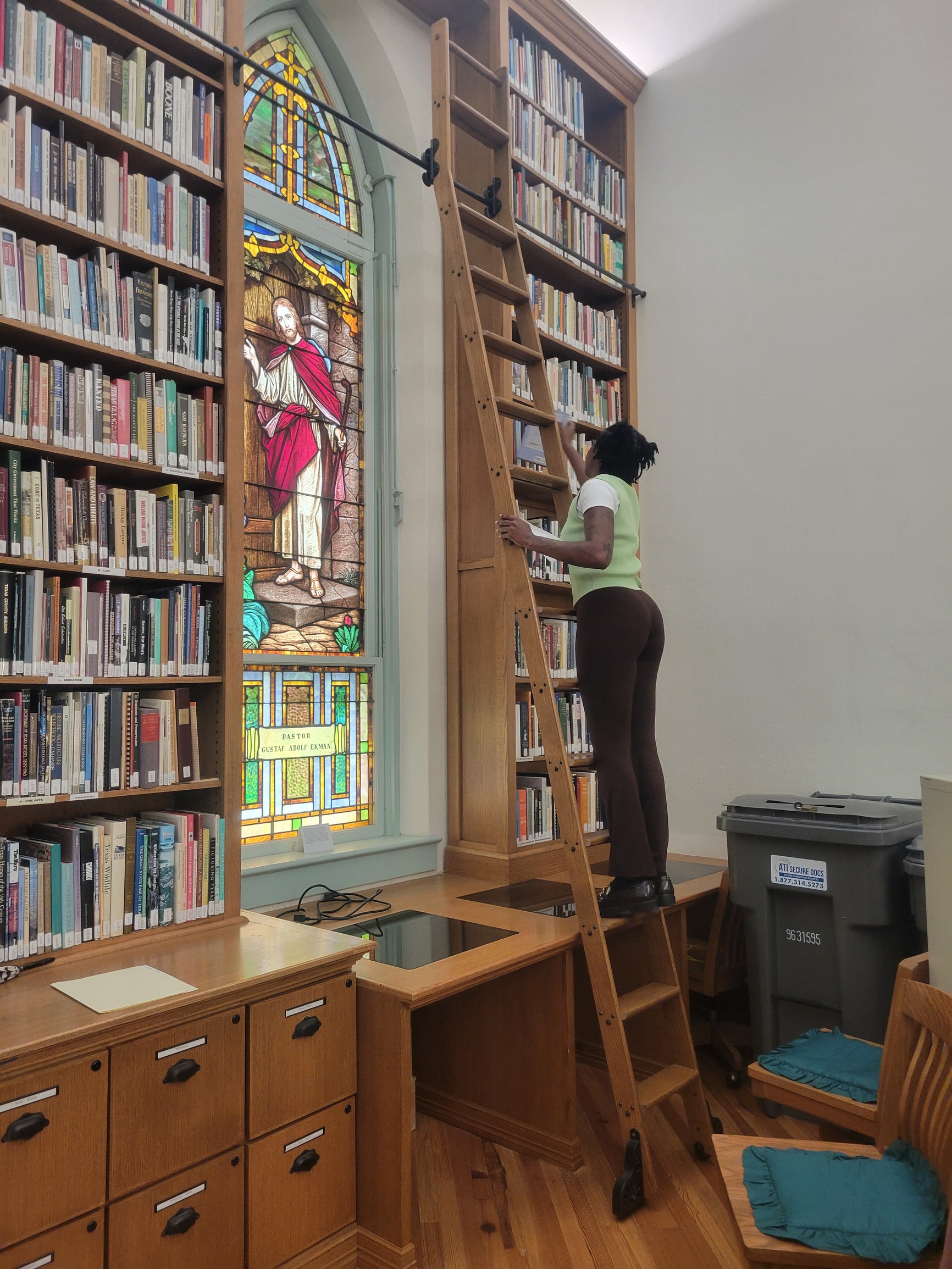Summer 2024: A Look Into My Time in Austin
My Goals:
Entering graduate school I faced a different set of challenges and expectations than my time in undergraduate education. Most of my undergraduate experience took place during the COVID-19 pandemic and opportunities were limited, so when I arrived at Rice University I was determined to take on new challenges. I aspired to join organizations, participate in internships, and overall find my footing as a well-rounded and involved student. I got my first taste of this in the Summer of 2024, working with the Friends of the Texas Historical Commission, a non-profit state agency partnered with the Texas Historical Commission.
Application and Acceptance:
Early in 2024, one of my advisors sent me and another student information about a 10-week long internship based in Austin. Upon seeing this I was elated because it was not only an opportunity to conduct important research and bolster my CV but travel outside of Houston and take a break from my often lonely life in the city. I applied to the program, and part of me was very skeptical about my ability to enter the internship, thinking that my lack of background in history and research experience would put me at a disadvantage. I gathered 2 letters of recommendation from faculty I worked with, wrote a statement of interest, compiled a resume, selected projects I found interesting, and took a shot. Down the line, I was invited for an interview and received the position. This was a joyous day, and in June of 2024 I started work as a Preservation Scholar with the Friends of the Texas Historical Commission’s Beyond the Markers Project.
The Project:
The Beyond the Markers Project was one of the many projects Preservation Scholars were allowed to work on, and I selected this task because it seemed most in line with my desire to conduct historical research. The project entailed researching people and places that have been granted Official Texas Historical Markers. My supervisors allowed me the space to research the topics that I wanted, so I opted to research African American medical professionals and institutions in 20th century Texas. I chose this specific field because I have always been fascinated with the intersection of literary and medical studies and the significance of diverse representation within healthcare. I researched 6 doctors and cites, writing extensive narratives about each. These narratives included background information, photos, and analysis of the conditions of medical care for African Americans in the age of Jim Crow. Throughout the process my write-ups went through multiple rounds of editing, I honed my writing and research skills, and overall had the most enriching experience. This project was essential because it allowed me to learn more about not only historical research and preservation but my own personal history as an African American Texan. In addition to my write-ups, I drafted inscriptions for Official Texas Historical Markers, cleaned an historical marker, conducted oral histories, and visited many historical sites in and around Austin. The internship was a life-changing opportunity that allowed me to gain significant connections and engage with a diverse group of scholars from Texas.
Key Takeaways:
My time with the Commission taught me that the Humanities, while not a homogenous discipline, is very interdisciplinary, and often a background in one subject can inform your abilities in another. I feel empowered to take on more duties and continue my research on Black medical care in Texas and beyond. I encourage all students to take a shot on diverse opportunities, and step outside of your comfort zone.
About the author:
Jae'la Solomon is from Dallas, TX she is a current PhD student in English Literature. Jae'la holds a B.A. in English Literature from the University of North Texas. Read more.
Further Reading:
Exploring Paradise: A Summer of Research in Moorea

